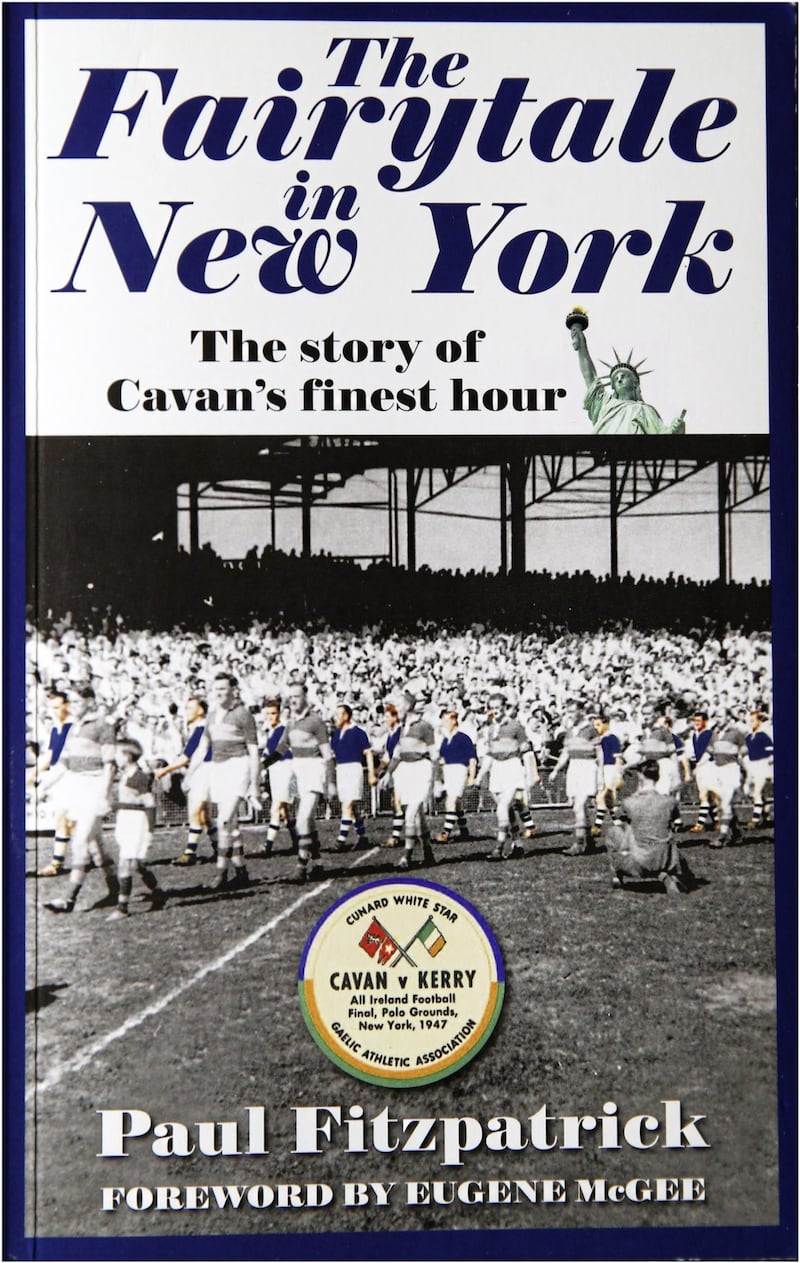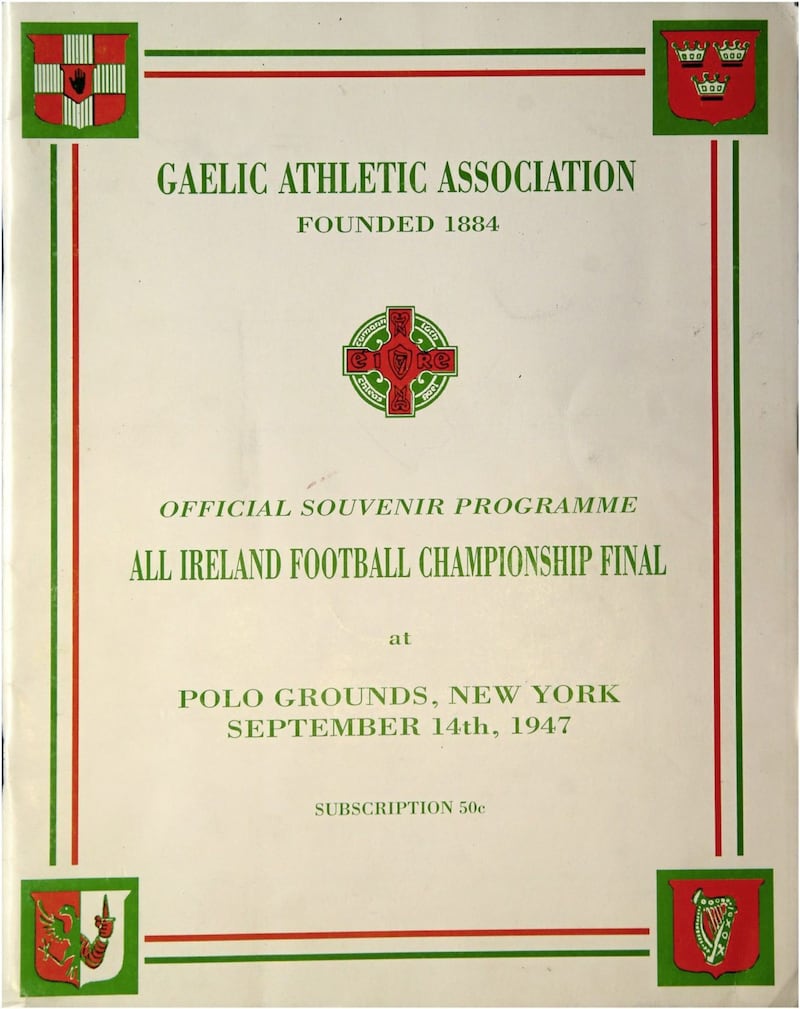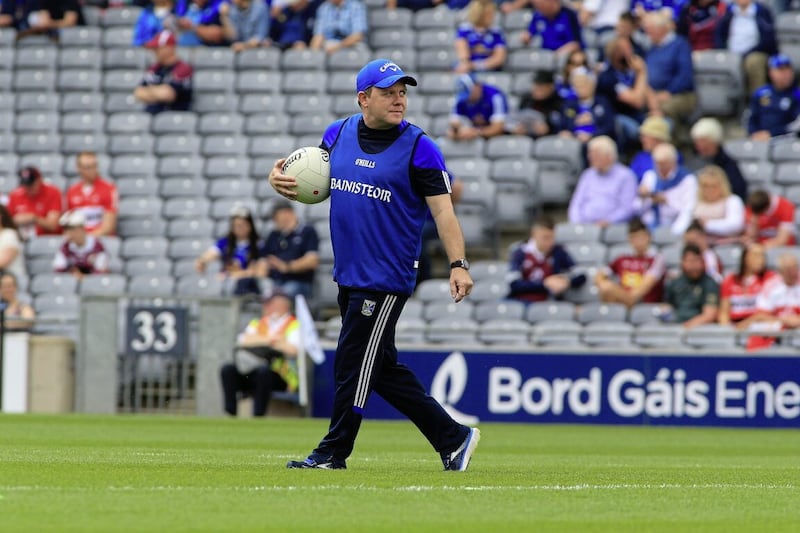OF all the All-Ireland Finals, it's surely the most famous – the only one not to be played in Ireland.
Only the decider of 35 years later, 35 years ago, when Offaly controversially denied Kerry a five-in-a-row, could possibly compete.
Yet the wider political and cultural significance of Cavan taking on Kerry in the Polo Grounds – in New York! – surely shades it.
Partition remained a major grievance for nationalists more than a quarter-century on and the presence of the Ulster champions in the decider was important. Cavan, indeed, perhaps represented a bridge between the two states on the island of Ireland, the Breffni Blues a symbol of Irish unity.
Today is the 70th anniversary of that memorable match, which also ended in a defeat for Kerry, Cavan coming back to claim their third All-Ireland against the reigning champions.
It was a propitious day in Cavan, which also witnessed the consecration of Kilmore cathedral, and there was no doubting the religious influence on the Polo Grounds game.
One man was the driving force behind the 1947 All-Ireland Senior Football Final taking place in New York, namely the Very Rev. Canon Michael Hamilton.
A native of Clonlara in Clare, and known in GAA circles simply as `The Canon', he was then president of the Munster Council.
For whose pondering the reasons behind such an iconic Irish event leaving these shores, the Canon himself explained matters on page seven of the 64-page official souvenir programme, in an article appropriately entitled `Why?'
Writing in that oddly formal manner which is still the GAA way of communicating officially, he declared:
`Amongst the motives that actuated the decision of the Annual Congress of the Gaelic Athletic Association to play the 1947 All-Ireland Football Final in New York, the central or dominating one may be said to be the desire to emphasize the essential unity of the Irish race, to commemorate its triumph over the vicissitudes of centuries, to strengthen the links that bind the Motherland to its exiled children, in a word, to awaken and refresh affectionate memories on both sides of the Atlantic.
`The realisation of that ambition would alone be sufficient to vindicate the project, if indeed, it needed vindication in any quarter.
'This spectacular event of the 14th September, 1947, is therefore a gesture of friendship, of affection and unity from the Gaels of Ireland to their fellow-Gaels in the United States of America…
'The Canon' went on: `It is fitting, too, that in this, the centenary year of Black '47, Ireland should in some outstanding way, celebrate her resurrection, and this display of the physique and fitness of her manhood in the pursuit of Gaelic idealism, before you, the Irish people of America is as convincing a demonstration of the survival of the Irish people at home from the throes of famine and the thraldom of tyranny, as it is testimony to the power and greatness which you, her exiles, have won for your name and race throughout the length and breadth of this great land of liberty'.
Page three of the programme was a photo of His Eminence Francis Cardinal Spellman, who 'very graciously received the Irish teams and officials and welcomed them to St Patrick's Cathedral at Holy Mass on September 14th'.
The Cardinal presented everyone with miraculous medals, with Cavan's Willie Doonan reportedly whispering to team-mate Mick Higgins "I hope we'll be getting a better one this evening, Mick." Cue suppressed laughter in the cathedral.
That's just one of the many gems in the story of before, during, and after the final brilliantly told in the book `The Fairytale in New York' - subtitled 'The story of Cavan's finest hour' - wonderfully written by Paul Fitzpatrick of the Anglo-Celt newspaper.

In his thoroughly researched tome, Fitzpatrick notes the sense of anticipation back home: Cornafean and Mullahoran decided between themselves to cancel a league match – but neglected to tell the referee, who had cycled 12 miles to the venue.
The broadcast attracted the largest audience up to that point in the history of Radio Eireann, with a crowd gathering outside a house to hear a radio being told `Get back, will yiz?! Give big Peter room to take the feckin' free!"
'Big Peter' Donohoe, Cavan's full-forward, could not be contained by the Kerry defence anyway, and his free-taking that day, eight converted in all, earned him great praise.
Arthur Daley of the New York Times famously labelled Donohoe 'the Babe Ruth of Gaelic football' and also wrote that 'He is Dead Eyed Dick with his accurate kicking'.
Yet a Cavan victory appeared highly unlikely in the early stages.
Kerry netted twice in the opening minutes, through full-forward Tom 'Gega' O'Connor and Batt Garvey, although the first 'goal' by was cancelled out and a free scored instead. Still, the Kingdom soon goaled again, from midfielder Eddie Dowling in flying form, and led by 2-1 to 0-1.
Garvey blasted past Cavan 'keeper Val Gannon again – but again referee Martin O'Neill had whistled for a free in.
Despite some positional switches by Cavan, Kerry did increase their lead to eight points. However, whether due to a collective decision to back the underdog, or because of a foul by Jackie Lyne on Cavan youngster Tony Tighe, the crowd began to get largely behind the Breffni Blues.
Conditions then helped Cavan too, as Kerry star Dowling landed heavily on the rock-hard pitch and knocked himself out – he had to spend a week in hospital.
The Blues then rocked their opponents with two quick-fire goals, from Joe Stafford and Higgins, and – amazingly – led by 2-5 to 2-4 at half-time.
'The Irish News' report, which appeared on the front page, repeated the error of the match announcer in the Polo Grounds of crediting Cavan's second goal to T P O'Reilly, although according to Fitzpatrick Stafford was quick to stake his claim to it, telling his team-mate as they left the field at half-time 'Come here, I scored that goal, not you.'
The second half was more nip and tuck, mostly a free-taking contest between Donohoe and 'Gega' O'Connor, but Higgins added a couple of crucial points from play for Cavan.
Commentator Michael O'Hehir's famous plea for the connection not to be cut off -which led to a popular song, 'Give Me Five Minutes More' – was heard.
The broadcast stayed on until 10.06pm Irish time, just enough time for listeners to hear of Kerry hitting the crossbar from a Teddy O'Sullivan shot, and another effort from Tim Brosnan clipping off the base of an upright.
The Kingdom had to replace one of their substitutes, Willie O'Donnell, due to a knee injury, with 'The Irish News' match report stating that 'at one hard-fought moment there were no fewer than three Kerrymen stretched out on the turf injured', the damage mostly being caused by the ground being baked hard by temperatures of up to 30 degrees.
Somehow in the searing, sweaty heat, the 15 men of Cavan who had lined out at the throw-in held on for a 2-11 to 2-7 triumph.
'The Irish Press' reported from Cavan town that "every door was thrown open and the people hurried into the streets. Bonfires were lighted and children and their parents joined in singing local ballads and cheering."
The delight felt in Cavan reached to the Falls Road in Belfast, with shouts of `Up Cavan! Up Ulster' reported.
Cavan returned home on the 'Queen Mary' liner, via London, to heroes' welcomes in the English and Irish capitals, and even in Navan and Kells in neighbouring county Meath.
Their renown has lasted long - not just a more 'five minutes more' of fame for that historic 15.
Cavan: V Gannon; W Doonan, B O'Reilly, P Smith; J Wilson, J J O'Reilly (capt.), S Deignan; PJ Duke, P Brady; T Tighe, M Higgins (1-2), C McDyer (0-1); J Stafford (1-0), P Donohoe (0-8), T P O'Reilly.
Substitutes (not used): E Carolan, T Sheridan, O R McGovern, J J Cassidy, T O'Reilly, E Tiernan, B Kelly.
Kerry: D O'Keeffe; D Lyne (capt.), J Keohane, P Brosnan; J Lyne, W Casey, E Walsh; E Dowling (1-0), E O'Connor; E O'Sullivan, D Kavanagh, B Garvey (1-0); F O'Keeffe, T O'Connor (0-6), P Kennedy (0-1). Substitutes: W O'Donnell for Dowling (inj.); M Finucane for Walsh; T Brosnan for O'Donnell (inj.); G Teehan for Kennedy.
Referee: Martin O'Neill (Wexford).
Attendance: 34,197.

*As so often, the teams differed from those shown in the programme: John Wilson started at right half-back for Cavan, with PJ Duke lining out at midfield, Columba McDyer – a Donegal native – going to left half-forward, and T P O'Reilly pushing up to top of the left, with Edwin Carolan dropping out.
Kerry deployed Dan Kavanagh at centre-forward, instead of Willie O'Donnell, with Paddy Kennedy coming in at left corner-forward – despite his being listed as injured in the programme. Plus ca change…
The programme included tributes to Michael Cusack, 'Cashel's great Archbishop' (Dr Croke), and the story of the world's handball championship.
There are also several poems: one entitled 'National Football Final', specially written by the late Peadar O'Cearnaigh, author of `The Soldier's Song', another 'Here's to you Cavan', and also 'The Boys of the Kingdom'.
Individuals paid for full-page ads, one stating simply 'Compliments of Peter Reeves', another `Success to the Gaelic Athletic Association – Peter Toal' – with no indication who they were or where they were from. At least `Thomas J Shanahan' stated that he was 'of Kerry descent'.
There were also three full-page ads for beers, and for travel services.
Reflective of the circumstances, and the different living standards in the USA and post-World War Two Ireland, there was also an ad urging readers to send `Timely food parcels' for 'family and friends in Ireland'.








